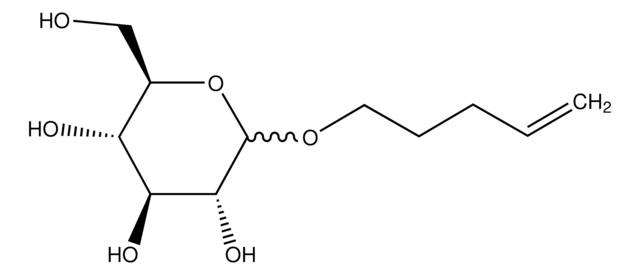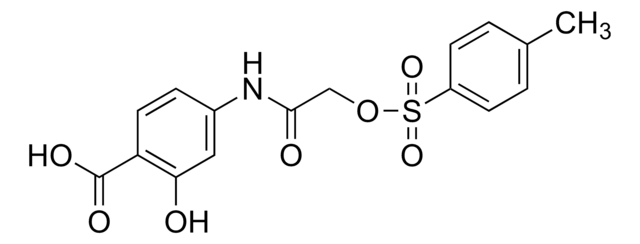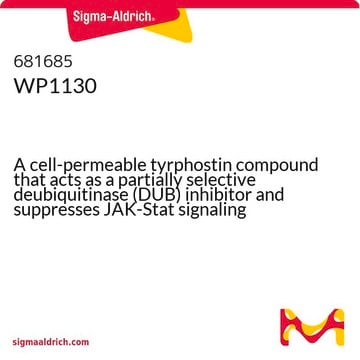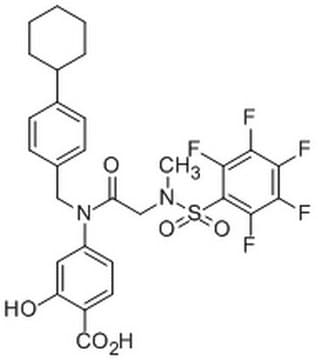573099
STAT3 Inhibitor V, Stattic
STAT3 Inhibitor V, Stattic, CAS 19983-44-9, is a cell-permeable inhibitor of STAT3 cellular function that targets the STAT3-SH2 domain and prevents its association with upstream Kinases.
Synonyme(s) :
STAT3 Inhibitor V, Stattic, 6-Nitrobenzo[b]thiophene-1,1-dioxide, Stat three inhibitory compound
About This Item
Produits recommandés
Niveau de qualité
Pureté
≥95% (HPLC)
Forme
solid
Fabricant/nom de marque
Calbiochem®
Conditions de stockage
OK to freeze
protect from light
Couleur
pale yellow
Solubilité
DMSO: 10 mg/mL
ethanol: 5 mg/mL
Conditions d'expédition
ambient
Température de stockage
2-8°C
InChI
1S/C8H5NO4S/c10-9(11)7-2-1-6-3-4-14(12,13)8(6)5-7/h1-5H
Clé InChI
ZRRGOUHITGRLBA-UHFFFAOYSA-N
Description générale
Actions biochimiques/physiologiques
STAT3
Conditionnement
Avertissement
Reconstitution
Autres remarques
Informations légales
Mention d'avertissement
Warning
Mentions de danger
Conseils de prudence
Classification des risques
Acute Tox. 4 Oral - Eye Irrit. 2 - Skin Irrit. 2 - STOT SE 3
Organes cibles
Respiratory system
Code de la classe de stockage
11 - Combustible Solids
Classe de danger pour l'eau (WGK)
WGK 3
Point d'éclair (°F)
Not applicable
Point d'éclair (°C)
Not applicable
Certificats d'analyse (COA)
Recherchez un Certificats d'analyse (COA) en saisissant le numéro de lot du produit. Les numéros de lot figurent sur l'étiquette du produit après les mots "Lot" ou "Batch".
Déjà en possession de ce produit ?
Retrouvez la documentation relative aux produits que vous avez récemment achetés dans la Bibliothèque de documents.
Les clients ont également consulté
Notre équipe de scientifiques dispose d'une expérience dans tous les secteurs de la recherche, notamment en sciences de la vie, science des matériaux, synthèse chimique, chromatographie, analyse et dans de nombreux autres domaines..
Contacter notre Service technique











